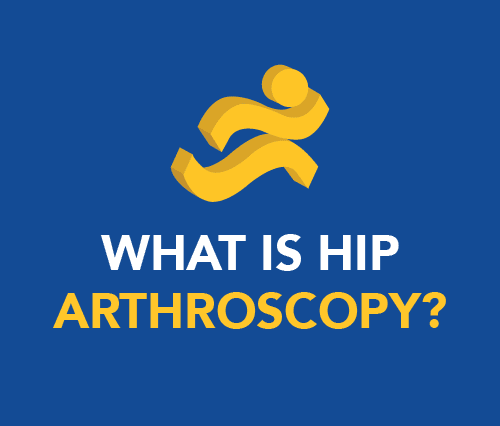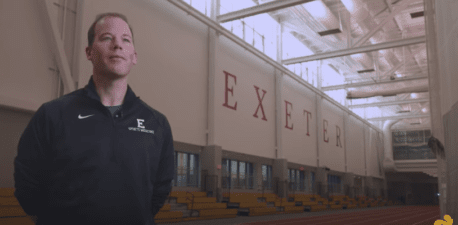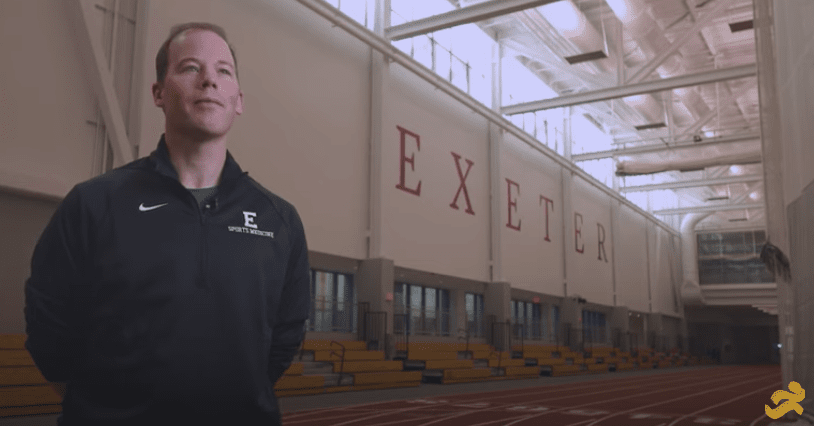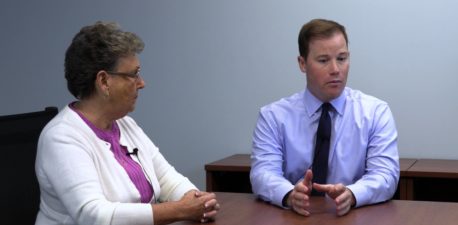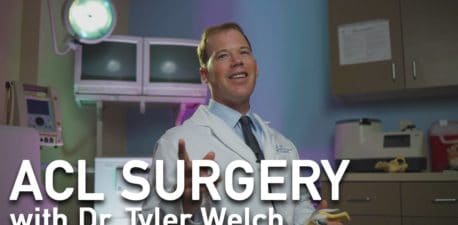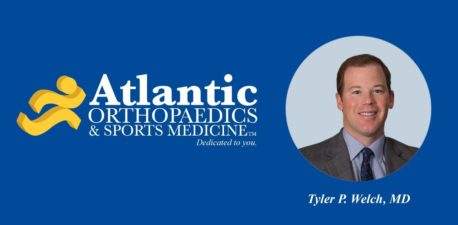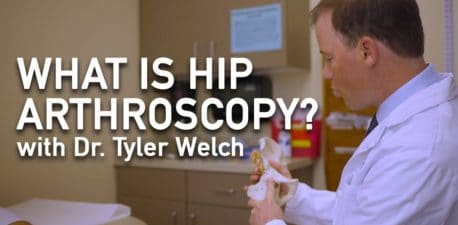Hip pain can be debilitating, affecting everything from mobility to sleep to overall quality of life. The hip joint is where the thigh bone (femur) connects to the pelvis and is used constantly when one walks, bends, and supports his/her upper body.
Who is a good candidate for Hip Arthroscopy?
Hip pain has varied causes; in young people the most common cause is a labral tear–damage to the soft tissue lining the inside of the hip socket (acetabulum). A Labral tear can occur from repetitive wear over time, impingement from an underlying problem with the joint structure, or trauma from a sports injury or accident.
For patients who suffer from a labral tear –and who have not found relief from conservative treatments like rest, over-the-counter pain relievers and physical therapy–hip arthroscopy may be the answer. It’s a minimally invasive procedure that can restore hip function and alleviate pain.
Patients with osteoarthritis, cysts, or ankylosis (fusion) of the hip joint are not good candidates for hip arthroscopy.
What is involved in the Hip Arthroscopy procedure?
First, an orthopedic specialist will determine whether hip arthroscopy is appropriate based on a physical exam and x-ray or MRI imaging. Unlike open surgery, arthroscopy only requires a small incision through which a camera (arthroscope) is inserted. This gives the surgeon a clear, magnified view of the interior of the hip joint during the procedure. The surgeon will then repair or remove the damaged labrum, bone impingement, or loose bodies. Performed in an outpatient setting , arthroscopic hip surgery usually leads to less post-operative pain and shorter recovery time than open hip surgery.
Surgical Expertise + State of the Art Technology
Dr. Tyler Welch is a board certified orthopedic surgeon who has performed approximately 300 hip arthroscopy procedures – In addition to his extensive experience, Dr. Welch utilizes state-of-the-art technology, including “HipMap” software that generates a detailed 3D image of the hip structure in advance of the procedure. Used as a planning tool, this advanced imaging enables him to precisely target the surgery and minimize disruption to surrounding tissue.
Another innovative device employed by Dr. Welch is the Guardian, a cutting-edge operating table designed to hold the patient comfortably and securely in place, while providing the surgeon greater range of motion and visibility during the procedure. Traditionally, achieving proper positioning for hip surgery required the use of a post between the patient’s legs, a technique that can cause groin pain . The Guardian table has eliminated post-operative groin pain.
Below, we asked Dr. Welch a few questions about hip arthroscopy.
Where do you perform this procedure?
I perform hip arthroscopy at NECOS and at York Hospital.
Are you still the only practice in the Seacoast that uses the Guardian Table for this procedure?
That’s right, I’m still the only surgeon on the Seacoast that uses the Guardian Table.
Anything else you’d like current or future patients to know about this procedure and how it would benefit them?
What is nice about hip arthroscopy is that it is a relatively straightforward recovery. Crutches are only required for about one week, and most patients make significant gains within 4-6 weeks. It is not too painful, and I have found that most patients only require pain medication for the first 24-48 hours.
Also, surgery is reliable for the right patient. As long as the patient has hip impingement without any sign of arthritis, surgery typically alleviates pain and eliminates most symptoms.
If you suffer from hip pain, don’t ignore it. Atlantic Orthopaedics and Sports Medicine offers treatments–both surgical and non-surgical–that can alleviate hip pain and restore your quality of life. If you think that hip arthroscopy may be right for you, schedule a consultation with Dr. Welch to learn more.
